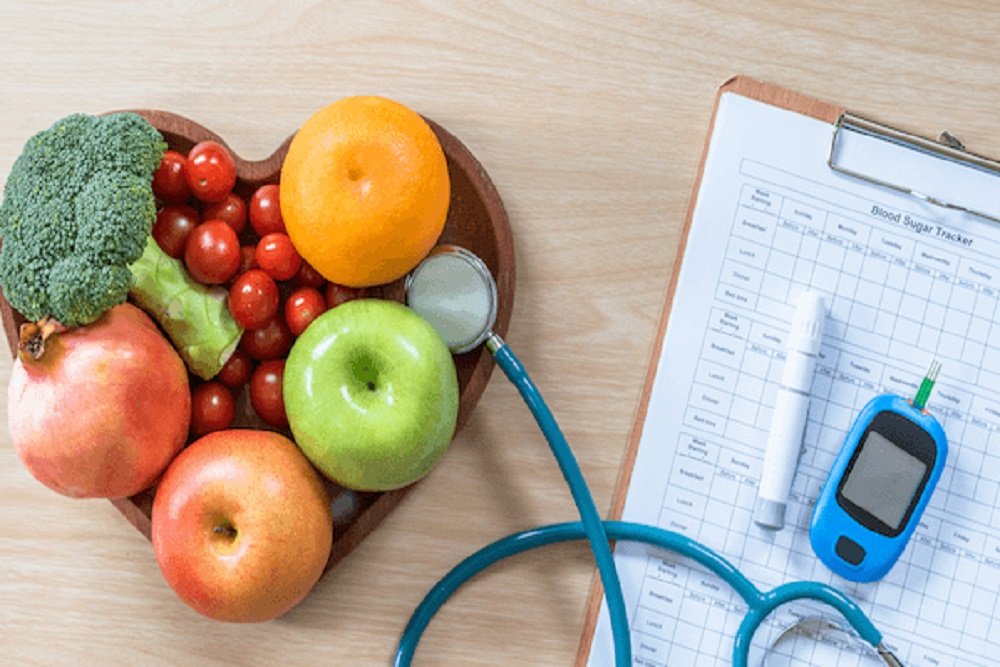
Diabetes mellitus, commonly known as diabetes, is a metabolic disease that causes high blood sugar. The hormone insulin moves sugar from the blood into your cells to be stored or used for energy. With diabetes, your body either doesn’t make enough insulin or can’t effectively use the insulin it does make.
Diabetes is a disease that occurs when your blood glucose, also called blood sugar, is too high. Blood glucose is your main source of energy and comes from the food you eat. Insulin, a hormone made by the pancreas, helps glucose from food get into your cells to be used for energy. Sometimes your body doesn’t make enough—or any—insulin or doesn’t use insulin well. Glucose then stays in your blood and doesn’t reach your cells.
Untreated high blood sugar from diabetes can damage your nerves, eyes, kidneys, and other organs.
There are a few different types of diabetes:
Diabetes symptoms are caused by rising blood sugar.
Symptoms in Men
In addition to the general symptoms of diabetes, men with diabetes may have a decreased sex drive, erectile dysfunction (ED), and poor muscle strength.
Symptoms in Women
Women with diabetes can also have symptoms such as urinary tract infections, yeast infections, and dry, itchy skin.
Gestational diabetes
Most women with gestational diabetes don’t have any symptoms. The condition is often detected during a routine blood sugar test or oral glucose tolerance test that is usually performed between the 24th and 28th weeks of gestation.
General symptoms
The general symptoms of diabetes include:
Different causes are associated with each type of diabetes.
Type 1 diabetes
Doctors don’t know exactly what causes type 1 diabetes. For some reason, the immune system mistakenly attacks and destroys insulin-producing beta cells in the pancreas. Genes may play a role in some people. It’s also possible that a virus sets off the immune system attack.
Type 2 diabetes
Type 2 diabetes stems from a combination of genetics and lifestyle factors. Being overweight or obese increases your risk too. Carrying extra weight, especially in your belly, makes your cells more resistant to the effects of insulin on your blood sugar
This condition runs in families. Family members share genes that make them more likely to get type 2 diabetes and to be overweight.
Gestational diabetes
Gestational diabetes is the result of hormonal changes during pregnancy. The placenta produces hormones that make a pregnant woman’s cells less sensitive to the effects of insulin. This can cause high blood sugar during pregnancy. Women who are overweight when they get pregnant or who gain too much weight during their pregnancy are more likely to get gestational diabetes.
Certain factors increase your risk for diabetes.
Type 1 diabetes
You’re more likely to get type 1 diabetes if you’re a child or teenager, you have a parent or sibling with the condition, or you carry certain genes that are linked to the disease.
Type 2 diabetes
Your risk for type 2 diabetes increases if you:
Gestational diabetes
Your risk for gestational diabetes increases if you:
Poor healing of sores, vaginal infections, impotence, weight gain, numbness or tingling of the extremities, and itchy skin can also be associated with diabetes.
Gestational diabetes is diabetes that occurs during pregnancy. It increases the risk of developing complications for both mother and baby.
When you have type 2 diabetes, you first need to eat a healthy diet, stay physically active and lose any extra weight. If these lifestyle changes cannot control your blood sugar, you also may need to take pills and other injected medication, including insulin. Eating a healthy diet, being physically active, and losing any extra weight is the first line of therapy. “Diet and exercise“ is the foundation of all diabetes management because it makes your body’s cells respond better to insulin (in other words, it decreases insulin resistance) and lowers blood sugar levels.
If you have any additional questions about Om Mantra Healing Center's services, please feel free to reach out to us. We would be happy to answer any questions you may have.

Professional and individual care by highly experienced and well-skilled Ayurvedic guru's.
Contact Us
Every aspect of your care is coordinated and teams of experts work together to provide exactly the care you need.
Contact Us
We serve healthy & fresh Ayurvedic food that suits your customized treatment plans to stimulate rejuvenation & health.
Contact Us